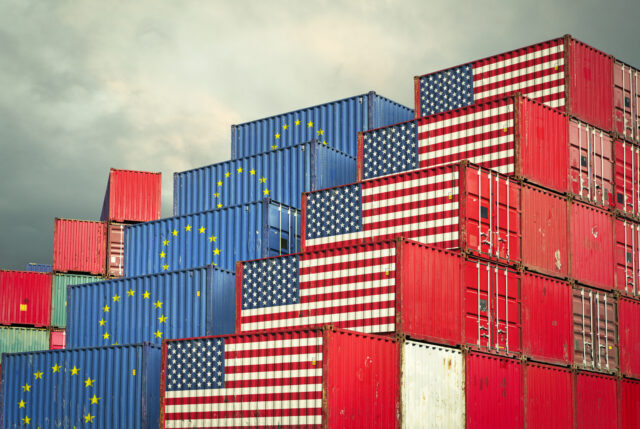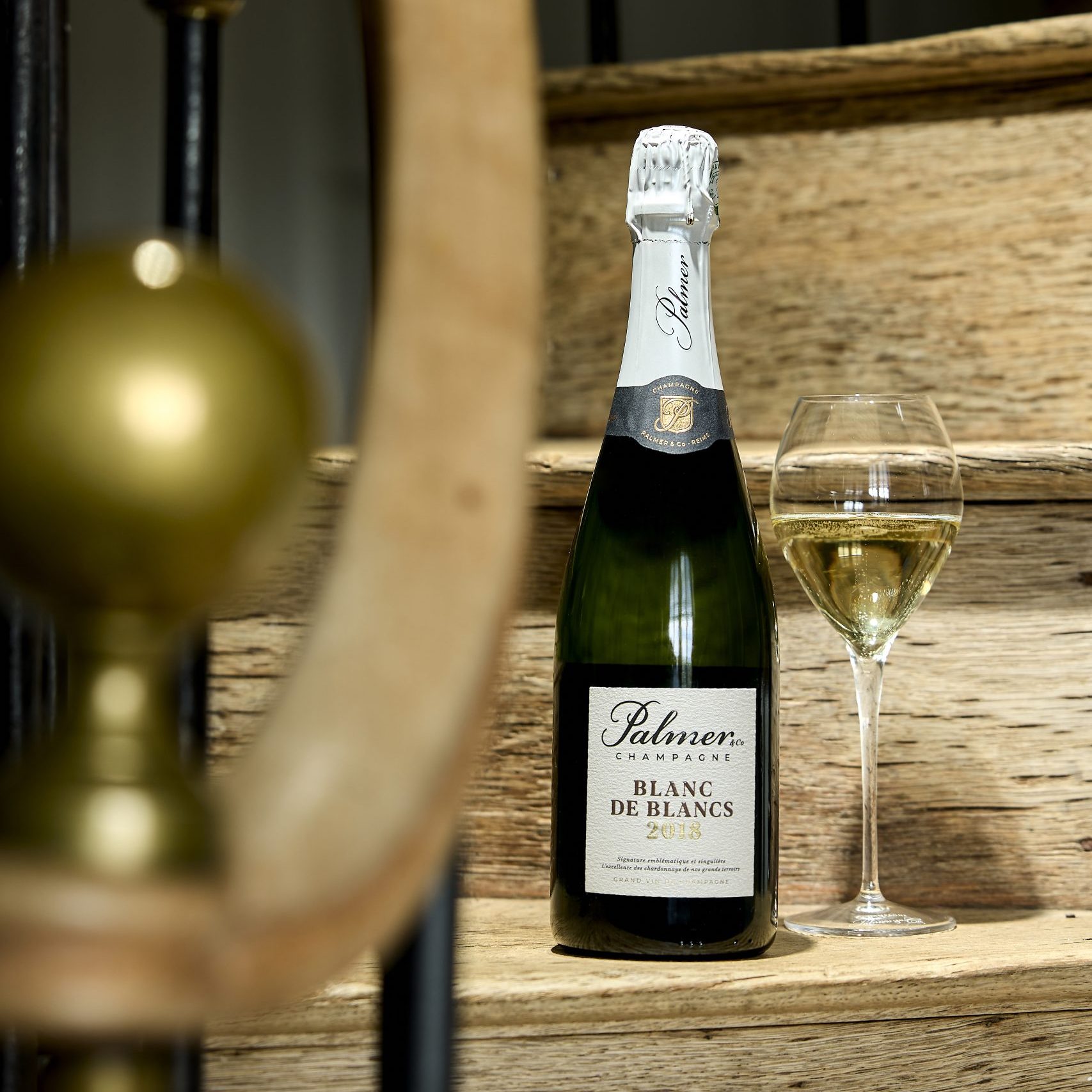Analysis: How tariffs have affected wine and spirits
The relief was audible from Cognac to Kentucky. On Friday, just a day after the US suspended its retaliatory 25% tariffs on Scotch whisky, Washington and Brussels decided to temporarily shelve their imposts on each other’s drinks industries.

The transatlantic agreements suggest that both Europe and the US want to resolve the 16-year-old trade battle over state aid to Airbus and Boeing. They have given themselves four months to lay the ground for a permanent agreement, but sources close to both sides suggest a route forward is visible and that neither side wants to revert to the retaliatory tariffs.
Spirits producers on both sides of the Atlantic will be praying for success because Europe and America are the biggest – and most profitable – export markets for each other’s products.
Those tariffs threatened to do lasting damage to significant industries and their employees.
US whiskey exports to the EU plummeted by 29% in 2019 (the latest figures available) in the face of the tariffs while last year the Scotch Whisky Association (SWA) says exports to the US slumped by almost a third, a loss of business worth some £340m compared with 2019.
Overall the SWA calculated that sales to the US were being hit by £30m a week.
However, as Mark Gillespie, the executive producer at WhiskyCast points out, while the US, UK, and EU did agree to suspend their drinks tariffs in the aerospace dispute over subsidies to Airbus and Boeing, that truce did not include the EU/UK 25% tariff on imports of American whiskies.
He explains, “That tariff was imposed in 2018 after the Trump Administration imposed tariffs on imported steel and aluminium from Europe on ‘national security’ grounds.”
He adds, “That dispute also needs to be resolved separately, and Boris Johnson appears to have reneged on his pledge during the last election to remove the ‘Bourbon tariff’ as soon as the UK was free from the EU.”
As previously reported by db,The Distilled Spirits Council of the United States (DISCUS) said that it was “greatly disappointed that the UK’s debilitating tariff on American whisky remains in place”.
“American whiskey exports to the UK, our fourth largest market, have declined by 53 percent, from US$150 to $71 million since the imposition of tariffs (2018-2020),” the statement read.
Trade groups in the UK and US are leaning on their governments to get that issue resolved, since the 25% tariff is automatically scheduled to double in June unless there’s a deal on steel and aluminium, according to Gillespie.
The Federation des Exportateurs de Vins et Spiriteux de France says that last year total exports to the US fell 13.9% due to the combined effects of the tariffs and the coronavirus pandemic. Overall cognac suffered a double-digit hit, with global exports dropping by 21.4% in value and 11.6% in volume.
French wine exports to the US fell by 11.3% in value and 5.5% in volume.
The prospect was of an even worse experience this year. Before January, French and German brandies had avoided the US tariffs, but as one of his last acts in office Donald Trump slapped the 25% impost on them.
The US is the largest export market for Cognac, so the move caused consternation, while the Armagnac interprofessional body said it would “destroy” the industry.
While the immediate suspension of the tit-for-tat tariffs is welcome all round, some observers suggest that the four-month horizon for settling the aviation dispute is tight. On the other hand, a Brussels source was quoted by the Financial Times as saying it would be “enough time to focus minds while still being very do-able”.
That said, the damage to wine and spirits exports will take much longer than four months to repair, not least because coronavirus has inflicted significant changes on consumption patterns.
The big shift to home drinking while bars and restaurants were closed has prompted US consumers to experiment with different products and new ranges, especially in the face of steep price rises for previous staples such as Scotch.
Partner Content
The surge in agave-based Tequila and mescal and the rapid growth in the emerging hard seltzer sector have come at the expense of more traditional spirits.
Those trends look set to continue, suggesting that Scotch distillers face a longer and tougher fight to return to the growth rates they had been anticipating, even with the ending of the penalty tariffs. The smaller the producer the more difficult the fight back will be.
The same is true of Bourbon and other American whiskies in Europe, which are being affected by the growing trend for cocktail consumption partly triggered by lockdown.
Britain will be a key player in the talks to resolve the 16-year Boeing/Airbus subsidies spat. Despite leaving the EU, Britain remains a significant partner in the Airbus consortium, which employs some 12,000 people in the UK.
The growing prospect of a long-term settlement has been triggered by fears that China is about to emerge as a major player in aviation, breaking the Airbus/Boeing duopoly for passenger aircraft as the world starts to travel once again – but in newer, greener planes.
And the nascent transatlantic pact will add to the gloom of Australia’s beleaguered wine producers.
The World Trade Organization had failed to get agreement with both sides. Indeed, over 16 years it had faced both ways at the same time and decreed that under its rules both Europe and America were entitled to impose the penalty tariffs, which they duly did.
Across the Pacific, after long negotiations, in 2015 Australia signed a free trade agreement with China, removing the existing 14% tariff on exports of wine. That prompted producers, notably Treasury Wine Estates, Australia’s biggest, to focus on the potential of the People’s Republic.
That supercharged sales. In 2008 Australia’s wine sales to China came to just A$73m. By 2018 they topped A$1 billion and in 2019 China was by far Australia’s biggest wine export market, taking more than a third of its overseas sales and more than its markets in the EU, Britain and America combined.
But last autumn China imposed tariffs of up to 212% on Australia’s wine exports in what Canberra sees as retaliation for its criticism of Beijing over the origins of the coronavirus and its human rights record.
China says its move is to stop cheap wine imports depressing the local market, but it has also slapped spiralling tariffs on Australian beef, timber, wool and shellfish. Ironically, only the Australian iron ore needed to expand infrastructure has remained unpenalised.
In December 2020, wine sales to China dropped to virtually zero and have not improved since, causing groups such as Treasury to reshape their entire business plans virtually overnight.
Australia has complained to the WTO and asked it to intervene but its procedures are typically tortuous and drawn out. And as the world knows, China has a tendency to comply only with international findings in its favour.
Australian producers might be well advised to concentrate on other export markets with Canberra and Beijing at loggerheads.
Read more




